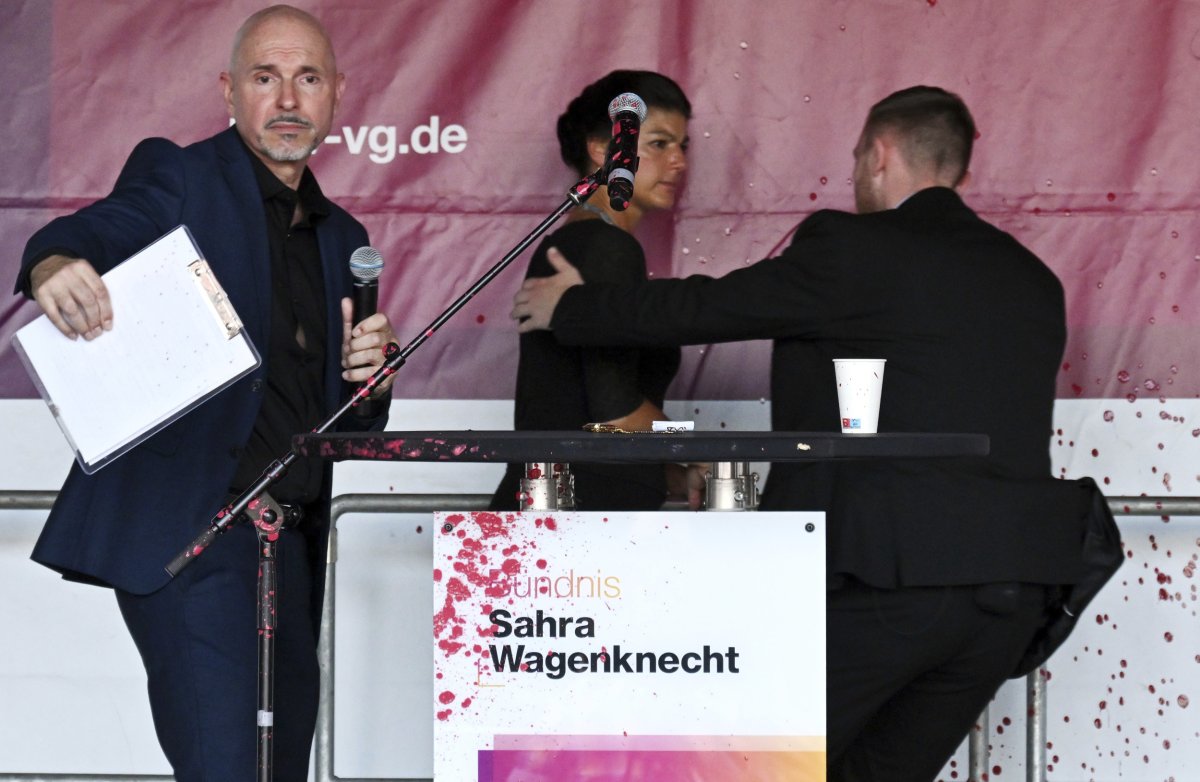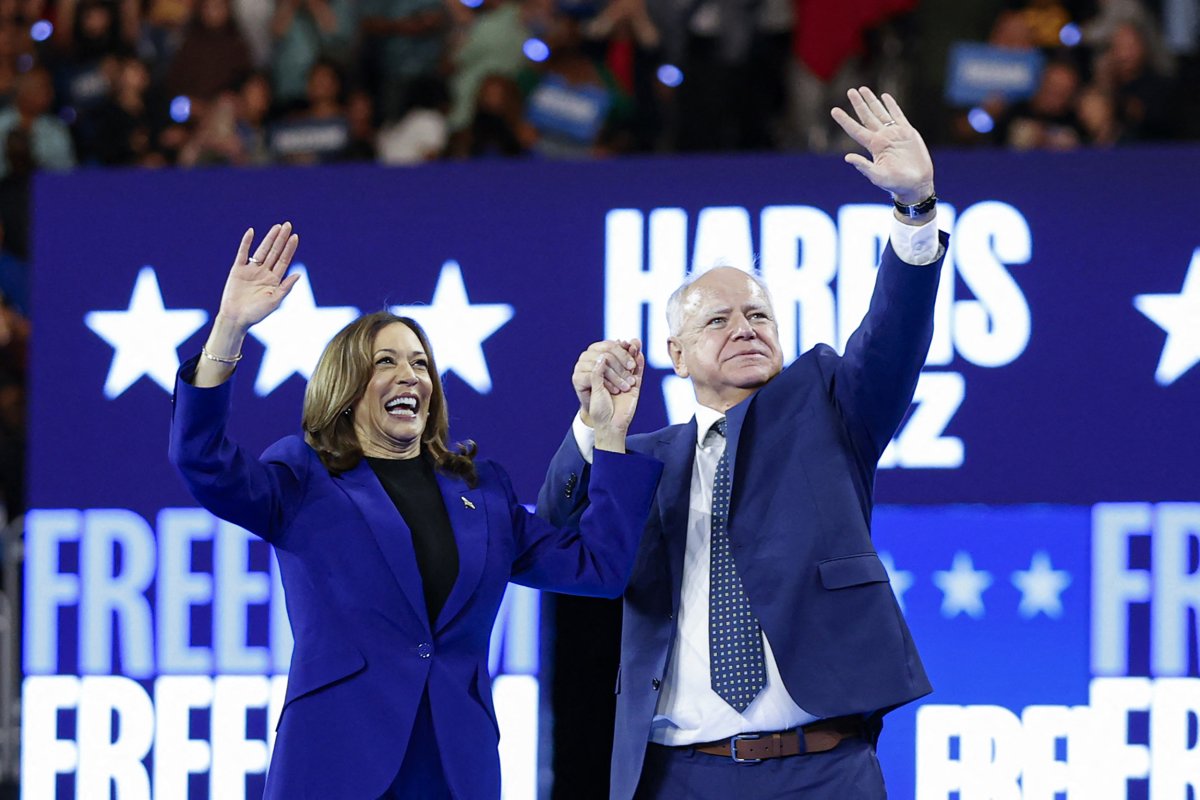A German political party leader was hit with a red liquid at a recent campaign event ahead of upcoming state elections.
On Thursday evening, Sahra Wagenknecht, founder of the new Sahra Wagenknecht Alliance, was lightly hit with an unknown red liquid substance in the city of Erfurt, the German news agency dpa reported.
Immediately after the incident, a man who has not been identified, was thrown to the ground by security officials.
Wagenknecht responded in a post on X, formerly Twitter, saying, “Thank you very much for all the concerned inquiries: I’m fine. I’m just still a little scared. But don’t worry: we won’t let ourselves be intimidated!”
No further information was released about the incident or the apprehended suspect.

Sahra Wagenknecht, chairwoman of the Sahra Wagenknecht Alliance (BSW), is escorted off the stage by a bodyguard after being spraying with a red liquid during a campaign event on Domplatz, Erfurt, Germany, on August 29, 2024.
Martin Schutt/dpa via AP/Martin Schutt/dpa via AP
While no one was injured in Erfurt, the incident highlights the growing political violence in Germany. In May, a prominent Berlin politician was violently assaulted, suffering head and neck injuries. Earlier, a candidate from Chancellor Olaf Scholz’s party was attacked while campaigning in Dresden, requiring surgery.
Both government and opposition parties report a surge in physical and verbal attacks against their members and supporters in recent months. They have called on police to increase protection for politicians and election rallies.
On Sunday, the two Eastern German states of Thuringia and Saxony are holding elections. In the elections, the far-right Alternative for Germany, also known as AfD, could become the strongest party in the nation for the first time.
Wagenknecht, who formally launched her party in January, aims to disrupt the political landscape as the national government faces deep unpopularity due to internal disputes. Her party is known by its German acronym, BSW.
High ratings for AfD and BSW, both strongest in the formerly communist east, have been fueled by dissatisfaction with the national government. Parties in Scholz’s governing coalition publicly bickered throughout the campaign for the June European Parliament elections, leading to poor results. Internal conflicts have only deepened over the summer, marked by disagreements about the 2025 budget.
In her campaign, Wagenknecht has sought to promote a combination of more left-leaning economic policies, such as higher wages, and a tougher approach to immigration.
Wagenknecht also challenges certain environmentalists’ approaches to combating climate change and opposes current sanctions against Russia—formerly Germany’s top gas supplier—as well as the German government’s arms supplies to Ukraine.
Wagenknecht previously said that her newly formed party will not affiliate with state governments that have a “clear position for diplomacy and against the preparation of war.”
This article includes reporting from The Associated Press.









